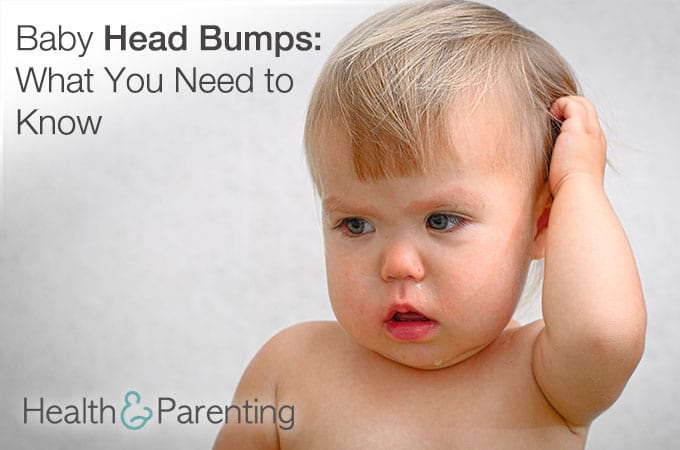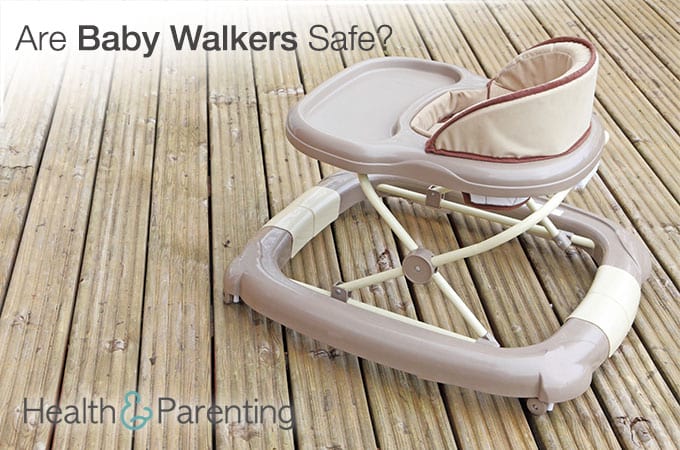Your baby is almost certainly going to bang his head at some point before his third birthday. Not many people make it through toddlerhood without the odd head bump. Some head injuries are more serious than others and it’s important you know the signs and can act fast in case of an emergency. Seeing your baby take a knock to the head can be upsetting, and you may find you are more upset about it than she is!
No matter how careful you are, your baby is likely to suffer a few bumps and bruises during those first few years of life. Babies are toddlers are pretty good at falling over, bumping into tables, falling off things and dropping hard plastic toys on their own faces.
What to do if your baby bumps her head
If your baby has suffered a minor bump to her head, holding a cold compress to the bumped area will help to reduce the swelling. Your baby will also need plenty of cuddles, love and reassurance as she’s likely to be upset about the injury. Your baby may be a little clingy while she recovers from the shock but should be back to her usual self in no time. Try to stay calm, remember your baby will pick up on your emotions. If you seem panicked and scared, your baby will feel panicked and scared too. Stay calm, reassure your baby and try to assess the damage. If you’re still breastfeeding, a quick feed could provide some much-needed comfort to your upset baby.
When to seek professional help
Most bumps are nothing to worry about, but sometimes babies and toddlers can really hurt themselves and may require medical attention. Your baby will need emergency medical attention if she:
- becomes unconscious
- is drowsy
- vomits
- struggles to breathe
- has a seizure or fit
You should also take your baby to the hospital if she seems to be having problems with her coordination, vision or talking. She will need to be taken to the hospital if she appears weak or confused, becomes unusually sleepy or cannot be woken at night.
It’s best to trust your instinct here. If your baby isn’t showing any of the above symptoms, but you still feel concerned, take your baby to see the doctor. Remember, all babies and toddlers suffer from a few bumps and bruises. It doesn’t mean you’re a bad parent, and the doctor isn’t going to judge you. Speak to your friends about it, you might be surprised to find out just how many babies have suffered similar head bumps!
Has your baby ever suffered a bump to the head?
Written by Fiona (@Fiona_Peacock), mother, writer and lover of all things baby related.
This information is not intended to replace the advice of a trained medical doctor. Health & Parenting Ltd disclaims any liability for the decisions you make based on this information, which is provided to you on a general information basis only and not as a substitute for personalized medical advice. All contents copyright © Health & Parenting Ltd 2016. All rights reserved.











